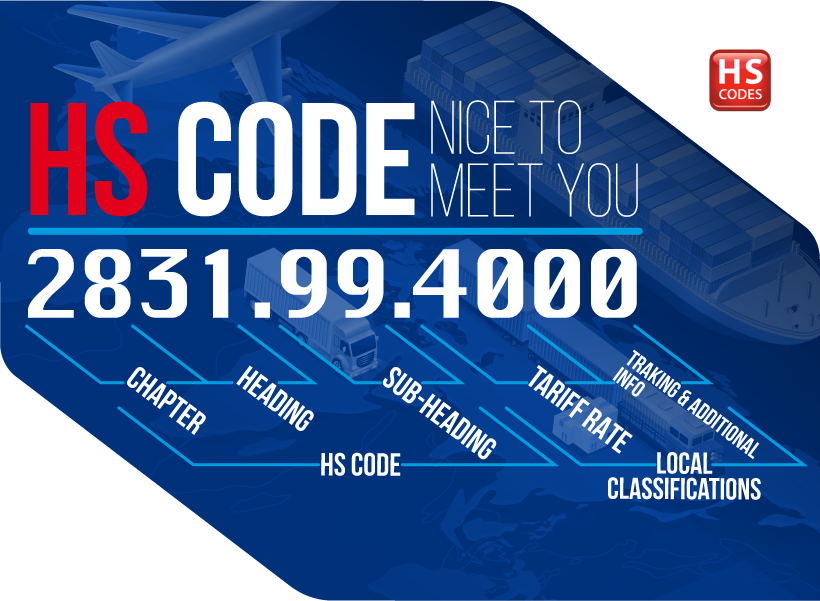WHAT IS HARMONIZED SYSTEM – HS CODE
The harmonized system (in English Harmonized Commodity Description and Coding System or, simply, Harmonized System – abbreviated as HS code) is a standardized system of nomenclature of customs tariffs that classifies each individual product through the use of a series of numbers.
This numbering is used in trade between nations, both in exports and imports, to allow a clear and rapid identification of goods.
Initially, the harmonized system was introduced by the “Custom Cooperation Council” in 1983, which then evolved into the WCO (World Custom Organization – WCO), a supranational organization based in Brussels (Belgium) and with over 170 member states.
HOW IS THE HARMONIZED HS SYSTEM DIVIDED?
The harmonized system (HS) is divided into 21 sections, subdivided in turn into 99 chapters sorted by type of goods, to reach 5000 groupings of goods.
The basic classifications, harmonized globally, are contained in the first 6 digits of the code (the first 2 digits correspond to the section, the second 2 digits correspond to the chapter and the third 2 digits correspond to the grouping of goods) and each state can divide further the goods included in these items, therefore from the seventh digit onwards the various customs tariffs may differ from each other. This structure is updated every 5 years, to take into account the evolution of the products subject to international exchanges, the last update took place in 2017.
WHAT ARE TARIC CODES?
The TARIC code is a method of classification and identification of goods traded internationally between the member states of the European Community, for the purpose of determining customs tariffs. TARIC codes, that is, the “Community customs tariff” have been applied in the European Union since 1987. TARIC codes are composed of 10 digits and are based on the nomenclature of the Harmonized System (HS) established by the international convention of the same name. They include, in addition to the rates of duties applicable to imports from third countries, the preferential duties applicable to goods originating in the countries to which the European Union has granted special treatment and a whole series of other specific measures.
The correct coding of goods is extremely important as it influences the application of import duties.
Do you want to know more about this topic?


